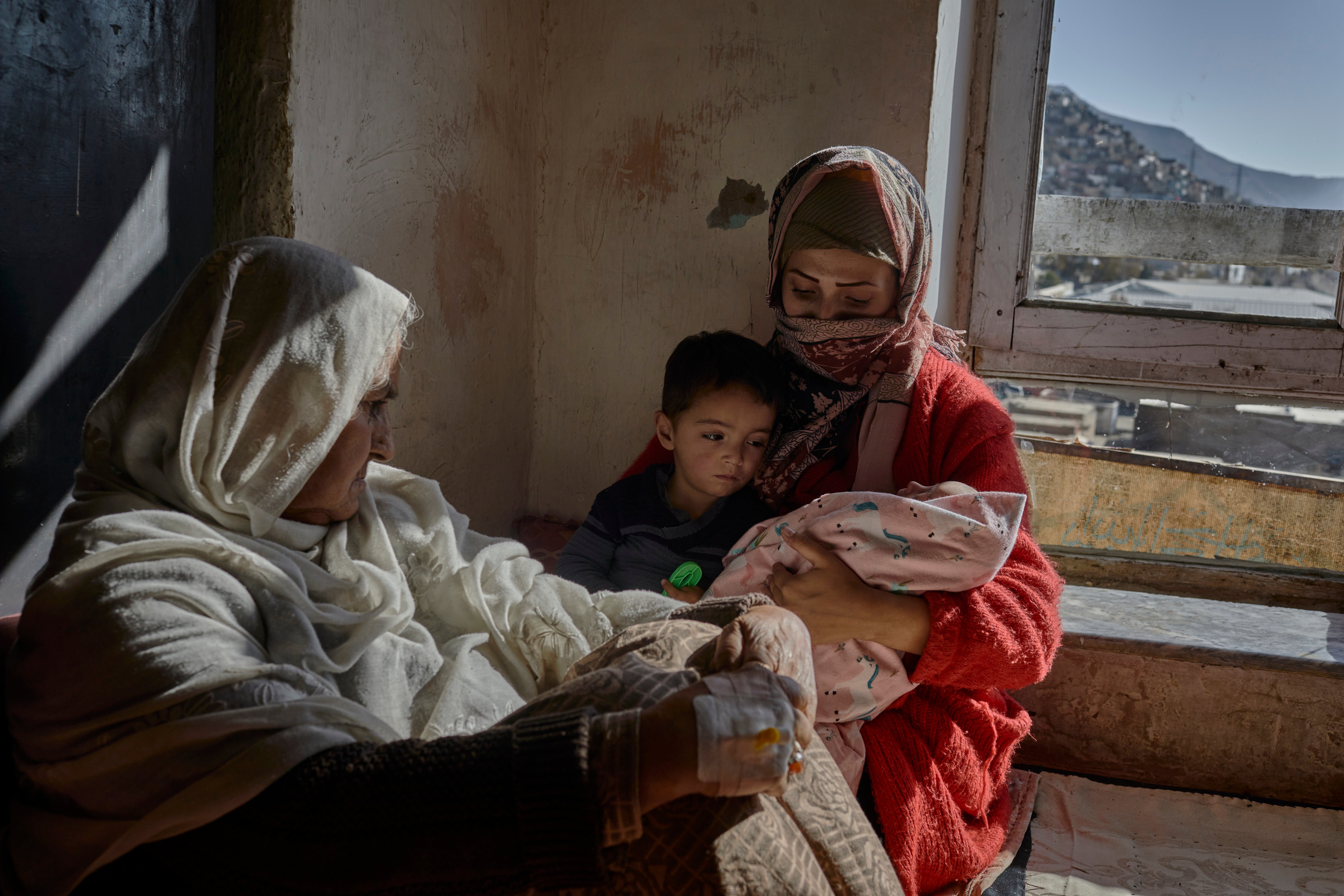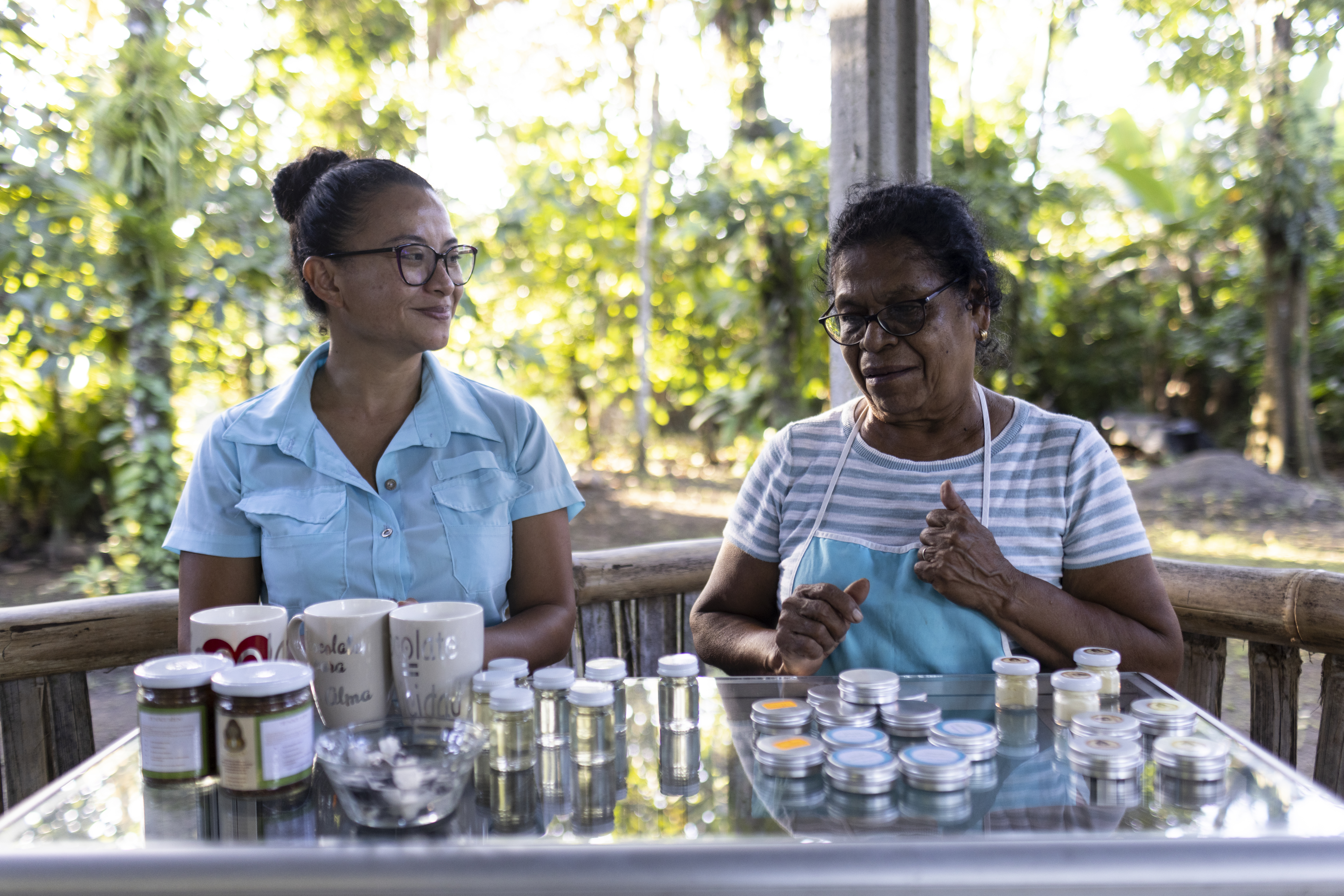Colombian refugees gather threads of their lives in weaving workshops
Colombian refugees gather threads of their lives in weaving workshops

CARACAS, Feb. 15 (UNHCR) - "It was a life filled with gunfire. Before we came to Venezuela we only saw armed men with hidden faces walking about. I came over because I got a letter telling me to leave."
A grandmother in her sixties, Rosa fled her Colombian home in Ocaña for the safety of neighbouring Venezuela along with her husband, two daughters and two granddaughters. She joined some 200,000 other Colombians living in border communities in Venezuela who are considered people of concern to UNHCR, as they are directly affected by the violence that grips the area.
The Colombian conflict is the most complex humanitarian crisis in Latin America. Millions of people have been forcibly displaced within Colombia and many others have fled to neighbouring countries. In 2005 alone, more than 6,000 Colombians asked for asylum in Venezuela, however, many other Colombians never go through the asylum procedure.
The impact on the receiving communities is considerable. Lack of employment and of other commercial activities needed to make a living is one of the biggest problems faced by refugees in Venezuela. For refugee women, the hurdle is even higher. The challenge for UNHCR is to help these women become involved in the local economy while helping them come to terms with their lives as refugees and informing them of their rights.
To help address these needs, a group of twenty refugee women have come together in a UNHCR project which sets out to use their own skills and experience to rebuild their lives and that of family members. The women all live in one of the poorest areas of Ureña, in the state of Táchira along the border with Colombia. They have begun a training course in weaving techniques designed to help them turn their skills into a profitable activity.
"These women have abilities that represent an excellent opportunity to establish themselves and normalise their lives," says Caribay Vanegas, one of the workshop's facilitators. In addition to the weaving lessons women are encouraged to explore their own potential through a series of creative activities. "If they are relaxed they can learn more easily," she says "and activities like 'Life Stories' also gives them a chance to get to know each other."
With 'Life Stories' refugee women in the workshop are offered a rare opportunity to reclaim their own story by writing down their most important experiences and sharing them with the other participants. The idea is to promote team work and strengthen the group. Many of the women want to talk about the violence they have witnessed in Colombia and the impact it's had on their lives and the lives of those they love.
"My granddaughter could not even go to school, she was always with me and would never hang out on her own," Rosa remembers. "Now when she sees the army around her with their weapons she gets scared remembering those violent people back home."
As each woman speaks, they begin to know more about each other and recognise what they have in common. One of the women recounts that she liked studying very much but that her mother did not let her continue. Another says she had no childhood because she was forced to work at a very young age. And, yet another says she began to study when she was already an adult. When one of them mentions that she is doing all she can to give her daughters what she could not have, they all agree. Supporting their children through school, they say, it the way to a better life.
With a better understanding of each other, the sense of belonging to a group gets stronger. The women all help one another and the ones with a basic knowledge of weaving techniques share their know-how with the rest. For complete beginners like Carmen, it's a great bonus. Since she fled to Venezuela with her husband and two daughters, Carmen, like many other refugees, has been working wrapping candies, cleaning lint from clothing or at any other small job she could find in Ureña.
"I am very happy with this workshop," she says, "I hope I can learn weaving to make some clothing for my daughters and also sell some pieces. Today I felt totally relaxed, I could follow all of the instructions the facilitator was giving us."
Perhaps the most important element the women bring to the workshop is hope. Although they all live nearby, many of them had never met each other, yet they are already thinking of setting up a cooperative to sell the products they'll be making over the next few months.
The workshop in Ureña is part of a series of initiatives devised within the UK Project and coordinated by the International Committee for the Development of the People (CISP) that aims to give women refugees the tools to initiate productive activities. Refugee women also have the possibility to apply for micro-credit loans through FYNAMPYME, an organization working with UNHCR and its implementing partners to finance productive projects put forward by refugees and asylum seekers.
Texts: Andrea Simancas
Editing and translation: Bernardo Pisani








